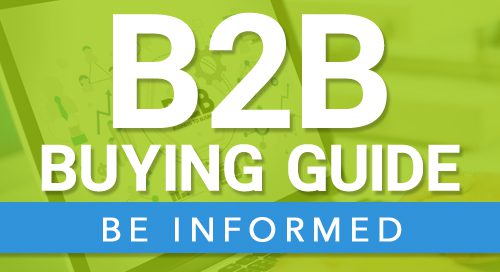
Essential Digital Marketing Services: Answers to Your Top Questions for 2024
In today’s digital landscape, businesses need more than just a website and social media presence to remain competitive. A well-rounded internet marketing strategy is essential for reaching customers, building brand recognition, and driving growth. However, with numerous services available, it can be overwhelming to determine which ones to prioritize. This guide breaks down the most common questions about essential digital marketing services that every business should consider in 2024. Whether you’re a small business or a large enterprise, these services can help you attract the right audience, grow your revenue, and stay ahead of the competition.
What is SEO, and Why is it Still Relevant?
Search Engine Optimization (SEO) ensures that your business shows up on search engine results pages (SERPs) when potential customers search for products or services you offer. Even with frequent algorithm updates, SEO remains crucial for visibility, credibility, and organic growth.
Key Elements of SEO
- On-Page SEO: Optimizing individual pages for specific keywords by improving content, headings, and meta descriptions.
- Technical SEO: Ensuring the site loads quickly, is mobile-friendly, and has a solid structure that search engines can easily crawl.
- Link Building: Acquiring quality backlinks from trusted websites to improve domain authority.
- Local SEO: Optimizing for geographically specific searches to attract nearby customers.
SEO is a long-term strategy. While results may take time, the benefits—such as sustainable traffic and higher click-through rates—make it one of the most valuable investments. Businesses that rank organically also enjoy higher trust levels with customers compared to paid ads, making SEO essential for long-term growth.

Should You Still Invest in PPC Advertising if You Have Good SEO?
Yes, combining SEO with Pay-Per-Click (PPC) advertising offers businesses the best of both worlds. While SEO delivers long-term traffic, PPC drives immediate results by placing your ads at the top of search engines and social media platforms.
How PPC Works Alongside SEO
- Immediate Visibility: PPC ads go live instantly, giving your business immediate exposure.
- Precise Targeting: Target customers based on demographics, behavior, and geographic location.
- Budget Flexibility: You set your budget, only paying when someone clicks your ad.
- Performance Tracking: Monitor campaign success in real-time with detailed analytics.
Even with excellent SEO, PPC allows businesses to capture additional high-value leads. It’s particularly useful for seasonal campaigns, product launches, and businesses targeting highly competitive keywords where ranking organically can be challenging.
Is Social Media Marketing Still a Priority in 2024?
Yes. Social media is one of the most effective platforms for building brand awareness and engaging with your audience. However, managing multiple platforms—like Facebook, Instagram, LinkedIn, and TikTok—requires a well-planned strategy to maintain consistency and relevance.
Core Components of Social Media Marketing
- Content Creation: Develop posts, videos, and stories that align with your brand and resonate with your audience.
- Community Management: Engage with followers by responding to comments, direct messages, and reviews.
- Social Media Advertising: Use targeted ads to expand reach and drive conversions.
- Performance Tracking: Monitor engagement, click-through rates, and follower growth to optimize efforts.
In 2024, businesses that invest in social media marketing not only boost brand awareness but also build relationships with customers, fostering loyalty and long-term engagement.
How Can Content Marketing Differentiate Your Brand?
Content marketing is about providing valuable information that attracts and retains customers without directly selling to them. High-quality content establishes your brand as an industry expert and nurtures trust with potential customers.
Types of Content That Work Well
- Blogs and Articles: Provide educational content that addresses customer pain points.
- Videos: Share product demonstrations, tutorials, and behind-the-scenes content to engage audiences.
- Infographics: Visualize complex data in easy-to-understand formats.
- Case Studies: Showcase how your business has solved problems for customers.
Content marketing supports other efforts like SEO by driving organic traffic. It also helps potential customers along their buyer’s journey, providing them with the information they need to make purchasing decisions.

Why is Email Marketing Still Effective in 2024?
Despite the rise of other marketing channels, email marketing remains one of the most effective tools for building relationships, nurturing leads, and driving sales. With personalized and automated campaigns, businesses can connect with their audience at the right time with relevant content.
Essential Email Marketing Tactics
- Segmentation: Divide your email list based on demographics or behavior for targeted messaging.
- Personalization: Use the recipient’s name and tailor emails based on their interests.
- Automation: Set up campaigns triggered by specific actions, such as welcome emails or abandoned cart reminders.
- Analytics: Track open rates, click-through rates, and conversions to refine your strategy.
Email marketing offers a direct line of communication with your audience and provides measurable results, making it a must-have for any business.
What Role Does Influencer Marketing Play?
Influencer marketing allows businesses to connect with niche audiences through trusted social media personalities. Whether you collaborate with a well-known influencer or a micro-influencer with a smaller but engaged following, this strategy builds credibility and expands reach.
Why Influencer Marketing Works
- Authenticity: Influencers create relatable content featuring your brand, which resonates with followers.
- Social Proof: Endorsements from influencers increase customer trust and encourage purchases.
- Targeted Reach: Micro-influencers, in particular, have highly engaged audiences in specific niches.
Influencer marketing can be especially effective for product launches, brand awareness campaigns, and companies targeting younger demographics active on social media platforms like Instagram and TikTok.

How Important is Website Design and User Experience (UX)?
Your website is often the first impression potential customers have of your business, so it needs to offer a seamless and engaging experience. A well-designed site not only attracts visitors but also guides them toward conversion, whether that’s making a purchase or filling out a contact form.
Key Elements of Effective Website Design
- Mobile Optimization: Ensure your website functions smoothly on smartphones and tablets.
- Fast Load Times: Avoid high bounce rates by reducing page load times.
- Clear Calls-to-Action (CTAs): Guide visitors to take specific actions with effective CTAs.
- SEO-Friendly Architecture: Make it easy for search engines to crawl and index your site.
A functional, user-friendly website supports your other marketing efforts and enhances the customer experience, improving your chances of converting visitors into customers.
How Does Data Analytics Improve Marketing Performance?
In today’s data-driven world, tracking and analyzing metrics is essential to understanding the success of your marketing efforts. Without data, it’s impossible to know what’s working and what isn’t.
Key Metrics to Track
- Website Traffic: Identify where your visitors are coming from and which channels drive the most traffic.
- Conversion Rates: Measure the percentage of visitors who complete desired actions.
- Engagement Rates: Track likes, shares, and comments on social media.
- Return on Investment (ROI): Assess the profitability of each campaign.
With the right analytics tools, businesses can make informed decisions, optimize campaigns, and allocate resources to strategies that deliver the best results.

Why Should Reputation Management Be Part of Your Strategy?
A business’s online reputation plays a significant role in customer decisions. Positive reviews and testimonials build trust, while negative feedback can deter potential customers. Managing your reputation ensures that your brand is seen in the best light.
Reputation Management Strategies
- Review Monitoring: Track mentions of your brand on review sites and social media.
- Respond to Feedback: Engage with both positive and negative reviews to show customers you care.
- Encourage Positive Reviews: Implement strategies to gather feedback from satisfied customers.
A strong online reputation not only enhances customer trust but also improves SEO, as businesses with positive reviews tend to rank higher on search engines.
In 2024, businesses need a comprehensive digital marketing strategy to remain competitive and meet customer expectations. By investing in SEO, PPC, social media, content marketing, email campaigns, and other essential services, companies can build a strong online presence and drive sustainable growth.
Author: Hudson Piccini
Hudson Cynar, a Harvard University alumna and the owner of three prosperous enterprises, is a distinguished business consultant, author, and writer. Her expertise spans multiple business sectors, with a particular emphasis on storage containers, commercial copiers, payroll services, and medical billing software. Dedicatedly investing thousands of hours into product and service research, Hudson crafts insightful reviews to guide entrepreneurs in making informed decisions for their businesses.